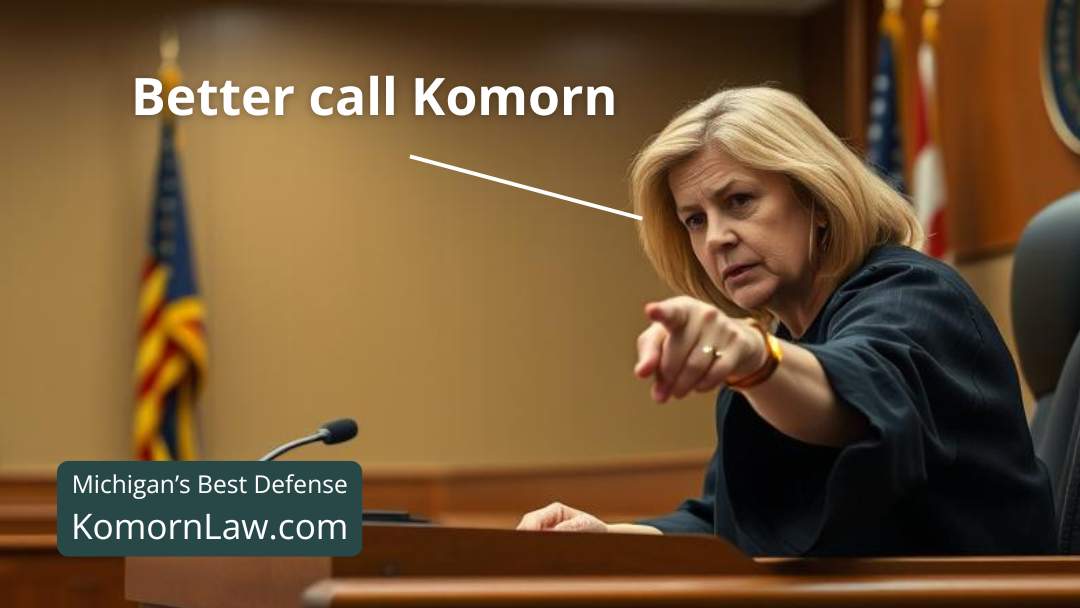WASHINGTON, D.C. ― Equipped with a quorum of Commissioners for the first time since 2018, the bipartisan United States Sentencing Commission voted today to promulgate amendments to the federal sentencing guidelines. “The Sentencing Commission is back in business,” said Chair Carlton W. Reeves. “Today, we are listening to Congress and the public by increasing first steps toward second chances, taking targeted action on gun trafficking and fentanyl, and expanding alternatives to incarceration. The policies issued today are common-sense ideas that will increase public safety while strengthening our communities.” Watch the public meeting.
During the pandemic, federal judges saved lives using their authority in 18 U.S.C. § 3582(c)(1)(A) to reduce sentences for incarcerated people facing “extraordinary and compelling” circumstances like certain risks posed by COVID-19. Responding to the First Step Act’s directive to increase the use and transparency of this tool, the Commission updated its guidelines to reflect lessons learned since the pandemic, ensure judges can continue to take first steps toward second chances for those who deserve them, and reunite families through appropriate reentry. “Judges are in the best position to decide if someone deserves to have the length of their sentence revisited,” said Chair Reeves. “This policy trusts courts to continue doing what is right.”
Since the Commission last had a quorum, communities across the country have struggled with the ills of gun trafficking and fentanyl. Congress directed the Commission to act on gun trafficking through the Bipartisan Safer Communities Act of 2022, while the Drug Enforcement Administration asked the Commission to evaluate possible action on fentanyl. In response, the Commission voted to take targeted action on both issues. “The problems of gun trafficking and drug overdoses demand a comprehensive response,” said Vice Chair Claire Murray. “I am proud to say the Commission is doing its part by ensuring we have proportional sentences for serious offenses.”
The Commission is also revising guidance to courts regarding people facing their first federal conviction. Relying on data and extensive analysis about recidivism, the Commission is acting to maximize public safety and encourage consideration of alternatives to incarceration. “Our new policies revise the sentencing guidelines based on empirical research and experience,” said Vice Chair Laura Mate. “This careful, evidence-based approach will increase fairness in sentencing and keep our communities safe.”
Among the many other policies issued by the Commission are those that seek to address ghost guns, sexual abuse of incarcerated people by correctional employees, clarify acceptance of responsibility points for defendants, and implement criminal justice legislation passed by Congress. “The policies issued today reflect the wide spectrum of views we received through public hearing testimony and tens of thousands of letters,” said Chair Reeves. “The policies issued today prove, beyond a doubt, that when you speak to the Commission, you will be heard.”
While the newly reconstituted Commission concludes its first policymaking cycle, there is more work to do. In the year to come, the Commissioners will continue to study a number of proposed policies, including those regarding how the guidelines treat acquitted conduct and the “categorical approach” to the career offender guideline. In the meantime, the Commission will send final amendments to Congress by May 1, 2023. If Congress does not act to disapprove the amendments, they will take effect on November 1, 2023. Visit the Commission’s website for more information about the amendment process and the changes approved today.
More Posts

Legal Tip – Driving High on Cannabis in Michigan
Driving under the influence of cannabis is illegal and carries serious consequences in Michigan.We have fought and won many cases from the District Courts, Circuit Courts, Court of Appeals and the Supreme Court through out the State of Michigan. We have also fought...

Michigan House Bill NO. 4391
It may just be easier to collect and analyze tears.This legislation seeks to integrate saliva testing for cannabis within law enforcement procedures, designating a refusal to participate in this testing as a criminal offense, similar to the penalties imposed for...

Legal Tip – Your Rights During a DUI Stop in Michigan
Komorn Law - Quick Legal TipsLegal Tip: Understanding Your Rights During a DUI Stop in Michigan A DUI stop can be stressful, but knowing your rights is crucial. You have the right to remain silent. You are not obligated to answer questions beyond basic identification....

How Much Does It Cost To Hire a Criminal Defense Attorney?
Don't do the crime - if you can't pay the price.Average Flat Fees. Some criminal defense attorneys charge a flat fee for certain types of cases, instead of billing by the hour. This may or may not include filing fees, motions, fees, etc. Flat fees include: DUI/DWI –...

What do you do when you are pulled over for suspected DUI?
If you are pulled over for suspected drunk driving you are probably going to be arrested. The less you say - the better off you are in the long run. If you find yourself being pulled over for suspected DUI, ensure you pull over safely to the roadside, maintain a...

One of Michigan’s Top DUI Attorneys
We aggressively defend all aspects of traffic law, from simple civil infractions to more serious alcohol and drug-related offenses. Don't wait till the last second to get an attorney. That's how you lose.Why Attorney Michael Komorn is one of Michigan’s Top DUI...

Michigan DUI Laws and Consequences – Second Offense
Michigan DUI Laws and Consequences – Second Offense Operating Under the Influence (OUI) is a serious offense in Michigan. If someone is caught driving under the influence of alcohol or drugs, they can face severe penalties. When it comes to a second offense, the...

Federal Ban on Owning Firearms by Cannabis Consumers is Unconstitutional Court Says
Federal charges against a non-violent, cannabis-using gun owner were unconstitutional.A federal appeals court panel upheld a lower court's ruling on Wednesday, declaring that federal charges against a non-violent, cannabis-using gun owner were unconstitutional. “The...

Michigan DUI Laws and Consequences – First Offense
First Offense DUI in Michigan: Laws and ConsequencesFacing a first offense DUI in Michigan can be daunting as the implications are significant and the legal landscape is complex. Understanding the laws surrounding Operating While Intoxicated is essential, as these...

Michigan Appeals Court Decision on Cannabis Use and Probation
Michigan Court of Appeals - Recreational Cannabis Use and ProbationRecently, another pivotal case, People v. Lopez-Hernandez, was decided by the Michigan Court of AppealsAt Komorn Law, we are dedicated to protecting the rights of our clients and staying at the...











